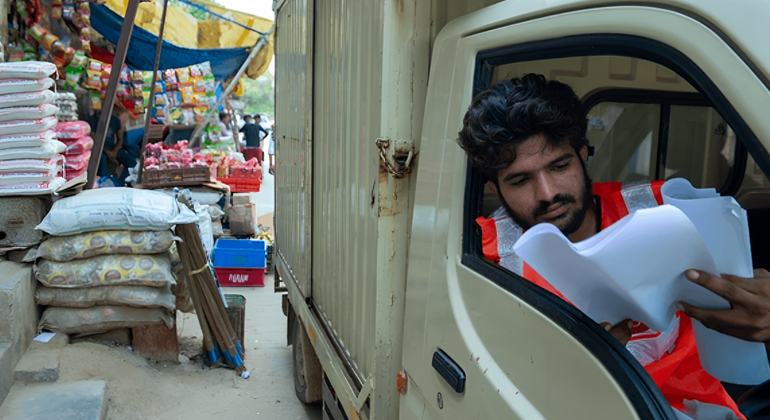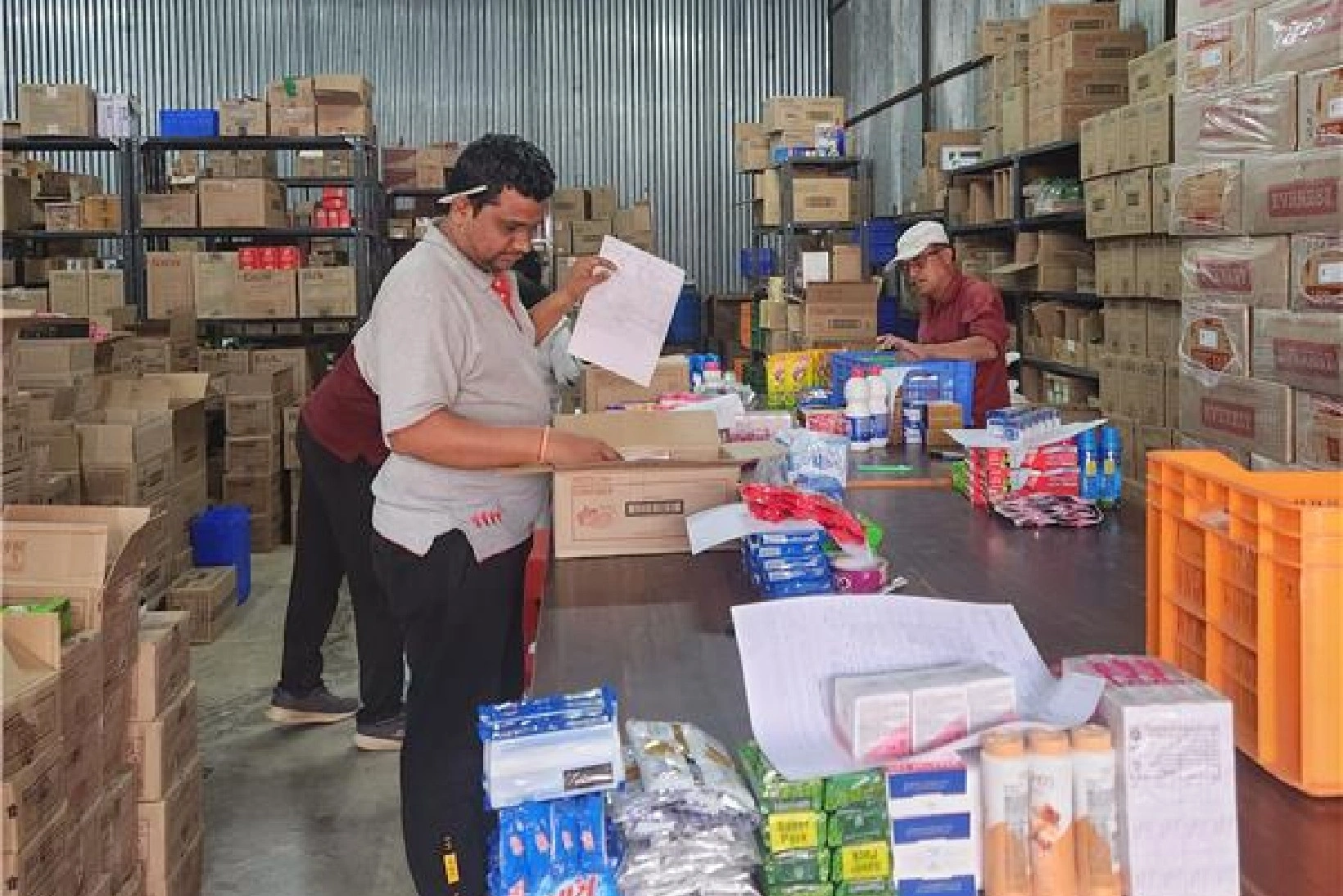With over 1.6 million incorporated companies in India and many millions more in the unorganised sector, B2B trade credit is the lifeblood of India’s economy. But hidden danger lurks beneath the surface. Vendor/supplier fraud constituted 32% of the external fraud experienced by Indian companies in 2022. Furthermore, 34% of Indian firms fell victim to fraud due to Know Your Customer (KYC) failures. These statistics paint a clear picture: neglecting the identity verification of counterparties and failing to assess their credit risk and creditworthiness exposes businesses to significant risks.
Today, businesses of all sizes are prioritising understanding their partners, reflecting a shift in the market. Knowing your counterparties, such as agents and dealers, is becoming increasingly important in managing everyday trade.
Let’s look at a couple of examples that illustrate the need for Identity Verification and Credit Risk Assessment
A Mid-Sized Freight Forwarding Company
With close to 60 years of operations, a freight forwarding company in India faces challenges in managing its credit exposure from its large agent base of organised and unorganised couriers, local franchisees, LLP firms, and few large MNCs. This company encounters varying credit behaviour from its co-loaders and agents and grapples with the risk of bad debts, that leave it vulnerable to several other risks.
The company has to be extremely vigilant in managing its cash flow, as it deals with choppy credit payments from its agents and co-loaders, while simultaneously having to pay advances to domestic and international airlines to ensure maximum space in the belly of the aircraft with pre-booked consignments.
Why Credit Risk Assessment Matters to This Company?
1. Managing Default Risk: Freight forwarding companies deal with a wide range of couriers of all sizes, across several sectors. The credit terms offered need to be in line with the risk profile of its courier partners and co-loaders. Conducting thorough credit checks beforehand helps such companies identify high-risk agents and enables them to avoid doing business with unreliable parties, thus minimising the risk of default.
2. Setting Credit Terms to Better Manage Cash Flows: Longer credit periods for courier partners and co-loaders, can tie up significant working capital. Based on the credit checks, the freight forwarding company can offer better credit terms to low-risk partners, while tightening credit terms for partners that are perceived as risky. This enables it to manage the accounts receivable better, ensuring predictable cash flows.
3. Ensuring the Financial Stability of its Partners: Freight forwarding and supply chain management companies tend to have large networks with many partners such as couriers and franchisees. Many of these operate in industrial or rural areas. If any partners are in poor financial health with stretched cash flows, they may not be able to fulfil their delivery obligations, leading to disruptions in the company’s operations. Assessing the financial stability of its partners allows these companies to select entities that are financially stable and capable of meeting their operational commitments.
4. Improving the Efficiency of Operations: Working with only reliable couriers and franchisees, the freight forwarding company is able to streamline the process, reducing the risk of delays or disruptions. This enhances its operational efficiency and enables the fulfilling of its obligations to the airlines promptly, improving the company’s overall working capital cycle and supply chain operations.
A Distributor of Frozen Foods in a Tier II City
ABC Foods is a distributor of frozen foods in Nashik, a tier II city in India. With a network comprising 250 wholesalers and retailers, its monthly turnover ranges from INR 8 to 10 million, translating into an annual revenue of over INR 100 million. ABC Foods procures green peas upfront from suppliers in Haryana, with no credit facility but provides 10–15 days credit to its wholesalers and retailers. Buying on an advance basis and selling on credit creates a cash flow mismatch for this distributor.
One of the critical issues faced by him, is the lack of documentation on shop establishments as well as credit information of its wholesalers and retailers in the supply chain – leading to potential risks of non-payment. Operating on thin margins, ABC Foods has a limited capacity to absorb any bad debts. Delayed payments from wholesalers and retailers further impact its working capital cycle adversely.
Why Credit Risk Assessment Matters to This Distributor?
1. Setting Credit Limits: By assessing the creditworthiness of wholesalers and retailers, ABC Foods can mitigate the risk of non-payment or delayed payment. This is important, especially given the substantial credit that it provides to wholesalers and retailers. Understanding the credit risk of its wholesalers and retailers helps it to make informed decisions about the quantum of credit it should extend.
2. Improving Days Sales Outstanding (DSO) for Better Working Capital Management: Delayed payments from wholesalers can increase ABC Food’s DSO, leading to liquidity constraints and hindering business operations. By understanding the creditworthiness of counterparties, analysing their payment history, and monitoring their payment pattern, the distributor can negotiate favourable credit terms, minimising DSO and improving cash flow efficiency.
3. Providing Comfort to Banks: The Distributor has credit lines from banks to fund its working capital needs. By adopting formal credit risk assessment practices, ABC Foods can demonstrate its commitment to managing credit risk and improving working capital management. This gives its bankers comfort in lending and enhancing credit limits when required.
The Role of Identity Verification and Credit Risk Assessment
Identity Verification processes, including KYC protocols, serve as the first line of defence against potential risks in B2B transactions. By conducting a thorough identity check on prospective counterparties, businesses can ensure that they are dealing with legitimate entities. Credit Risk Assessment enables businesses to confirm whether their counterparties are financially sound and statutorily compliant. Moreover, credit risk assessment plays a pivotal role in determining the creditworthiness of potential partners. Through an analysis of financial statements, management credentials, litigation history, import and export data, and social media (employee and customer feedback), businesses can gauge the likelihood of timely payments from their customers and mitigate the risk of bad debt. Businesses can also to verify the financial stability of suppliers which is critical to the seamless function of their supply chain.
Traditionally, verifying a business entity and assessing its creditworthiness entailed a cumbersome list of manual processes, from sifting through piles of paperwork to conducting labour-intensive background checks, often resulting in delays and inefficiencies. In stark contrast, the emergence of cutting-edge tools like Electronic KYC (eKYC) and Video KYC has revolutionised identity verification procedures, increasing efficiency and lowering cost.
Similarly, tech-enabled B2B Risk Assessment and Monitoring Platforms, like Rubix provide insights into the credit, compliance, and supplier risks of counterparties and help monitor these risks. As a result of technological innovation, eKYC, Video KYC, and online Risk Management Platforms are now available as Software-as-a-service (SaaS) tools that no longer require large upfront tech investments or integration costs. By adopting these platforms, companies and establishments of all sizes can build trusted relationships with their counterparties, strengthen their supply chain, and reduce risks, while simultaneously strengthening their financial performance.








